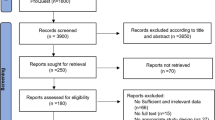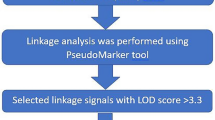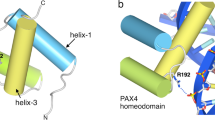Abstract
Ecto-nucleotide pyrophosphatase/phosphodiesterase 1 (ENPP1, also known as PC-1) inhibits insulin signal transduction pathway(s). Previous studies have demonstrated the K121Q variant of the ENPP1 gene to have a significant functional role in determining susceptibility to insulin resistance and type 2 diabetes (T2D). To assess whether the K121Q variant has any impact on T2D in Japanese, we undertook an extensive case-control association study using a total of 911 unrelated Japanese T2D patients and 876 control subjects. No significant difference was observed in either genotype distribution (P=0.95) or allele frequency (P=0.83) between T2D and control groups. Notably, the frequency of the ancestral Q121 allele, which is also present in other primates, was quite high in African-Americans, and showed a marked ethnic variation (77.3% in African-Americans, 16.7% in European Americans, 10.5% in Japanese and 4.2% in Han Chinese). Consequently, the pairwise FST value (a classic measure of genetic distance between pairs of population) showed highly significant differentiations between African-American and non-African-American populations (FST>0.3). Our results indicated that the K121Q variant of the ENPP1 gene has very little, if any, impact on T2D susceptibility in Japanese, but may play a role in the inter-ethnic variability in insulin resistance and T2D.
Similar content being viewed by others

Log in or create a free account to read this content
Gain free access to this article, as well as selected content from this journal and more on nature.com
or
Change history
01 July 2006
The received date that was shown for this article was incorrect. It should read 31 January, 2006.
References
Abate N, Chandalia M (2003) The impact of ethnicity on type 2 diabetes. J Diabetes Complications 17:39–58
Abate N, Carulli L, Cabo-Chan A, Chandalia M, Snell PG, Grundy SM (2003) Genetic polymorphism PC-1 K121Q and ethnic susceptibility to insulin resistance. J Clin Endocrinol Metab 88:5927–5934
Abate N, Chandalia M, Satija P, Adams-Huet B, Grundy SM, Sandeep S, Radha V, Deepa R, Mohan V (2005) ENPP1/PC-1 K121Q polymorphism and genetic susceptibility to type 2 diabetes. Diabetes 54:1207–1213
Almind K, Doria A, Kahn CR (2001) Putting the genes for type II diabetes on the map. Nat Med 7:277–279
Bacci S, Ludovico O, Prudente S, Zhang YY, Di Paola R, Mangiacotti D, Rauseo A, Nolan D, Duffy J, Fini G, Salvemini L, Amico C, Vigna C, Pellegrini F, Menzaghi C, Doria A, Trischitta V (2005) The K121Q polymorphism of the ENPP1/PC-1 gene is associated with insulin resistance/atherogenic phenotypes, including earlier onset of type 2 diabetes and myocardial infarction. Diabetes 54:3021–3025
Chen KW, Boyko EJ, Bergstrom RW, Leonetti DL, Newell-Morris L, Wahl PW, Fujimoto WY (1995) Earlier appearance of impaired insulin secretion than of visceral adiposity in the pathogenesis of NIDDM. 5-Year follow-up of initially nondiabetic Japanese-American men. Diabetes Care 18:747–753
Chimpanzee Sequencing, Analysis Consortium (2005) Initial sequence of the chimpanzee genome and comparison with the human genome. Nature 437:69–87
Costanzo BV, Trischitta V, Di Paola R, Spampinato D, Pizzuti A, Vigneri R, Frittitta L (2001) The Q allele variant (GLN121) of membrane glycoprotein PC-1 interacts with the insulin receptor and inhibits insulin signaling more effectively than the common K allele variant (LYS121). Diabetes 50:831–836
Dong H, Maddux BA, Altomonte J, Meseck M, Accili D, Terkeltaub R, Johnson K, Youngren JF, Goldfine ID (2005) Increased hepatic levels of the insulin receptor inhibitor, PC-1/NPP1, induce insulin resistance and glucose intolerance. Diabetes 54:367–372
Endler G, Mannhalter C, Sunder-Plassmann H, Schillinger M, Klimesch A, Exner M, Kapiotis S, Meier S, Kunz F, Raiger E, Huber K, Wagner O, Sunder-Plassmann R (2002) The K121Q polymorphism in the plasma cell membrane glycoprotein 1 gene predisposes to early myocardial infarction. J Mol Med 80:791–795
Frittitta L, Baratta R, Spampinato D, Di Paola R, Pizzuti A, Vigneri R, Trischitta V (2001) The Q121 PC-1 variant and obesity have additive and independent effects in causing insulin resistance. J Clin Endocrinol Metab 86:5888–5891
Goldfine ID, Maddux BA, Youngren JF, Frittitta L, Trischitta V, Dohm GL (1998) Membrane glycoprotein PC-1 and insulin resistance. Mol Cell Biochem 182:177–184
Goldfine ID, Maddux BA, Youngren JF, Trischitta V, Frittitta L (1999) Role of PC-1 in the etiology of insulin resistance. Ann N Y Acad Sci 892:204–222
González-Sánchez JL, Martínez-Larrad MT, Fernández-Pérez C, Kubaszek A, Laakso M, Serrano-Ríos M (2003) K121Q PC-1 gene polymorphism is not associated with insulin resistance in a Spanish population. Obes Res 11:603–605
Gu HF, Almgren P, Lindholm E, Frittitta L, Pizzuti A, Trischitta V, Groop LC (2000) Association between the human glycoprotein PC-1 gene and elevated glucose and insulin levels in a paired-sibling analysis. Diabetes 49:1601–1603
Hamaguchi K, Terao H, Kusuda Y, Yamashita T, Hazoury Bahles JA, Cruz LL M, Brugal VLI, Jongchong WB, Yoshimatsu H, Sakata T (2004) The PC-1 Q121 allele is exceptionally prevalent in the Dominican Republic and is associated with type 2 diabetes. J Clin Endocrinol Metab 89:1359–1364
Jensen CC, Cnop M, Hull RL, Fujimoto WY, Kahn SE (2002) Beta-cell function is a major contributor to oral glucose tolerance in high-risk relatives of four ethnic groups in the U.S. Diabetes 51:2170–2178
Kubaszek A, Pihlajamäki J, Karhapää P, Vauhkonen I, Laakso M (2003) The K121Q polymorphism of the PC-1 gene is associated with insulin resistance but not with dyslipidemia. Diabetes Care 26:464–467
Kubaszek A, Markkanen A, Eriksson JG, Forsen T, Osmond C, Barker DJ, Laakso M (2004) The association of the K121Q polymorphism of the plasma cell glycoprotein-1 gene with type 2 diabetes and hypertension depends on size at birth. J Clin Endocrinol Metab 89:2044–2047
Laukkanen O, Pihlajamäki J, Lindström J, Eriksson J, Valle TT, Hamalainen H, Ilanne-Parikka P, Keinänen-Kiukaanniemi S, Tuomilehto J, Uusitupa M, Laakso M (2004) Common polymorphisms in the genes regulating the early insulin signalling pathway: effects on weight change and the conversion from impaired glucose tolerance to Type 2 diabetes. The Finnish diabetes prevention study. Diabetologia 47:871–877
Maddux BA, Goldfine ID (2000) Membrane glycoprotein PC-1 inhibition of insulin receptor function occurs via direct interaction with the receptor alpha-subunit. Diabetes 49:13–19
Maddux BA, Sbraccia P, Kumakura S, Sasson S, Youngren J, Fisher A, Spencer S, Grupe A, Henzel W, Stewart TA (1995) Membrane glycoprotein PC-1 and insulin resistance in non-insulin-dependent diabetes mellitus. Nature 373:448–451
Maddux BA, Chang YN, Accili D, McGuinness OP, Youngren JF, Goldfine ID (2005) Overexpression of the insulin receptor inhibitor, PC-1/NPP1, induces insulin resistance and hyperglycemia. Am J Physiol Endocrinol Metab (in press) DOI: https://doi.org/10.1152/ajpendo.00298.2005
McCarthy MI (2004) Progress in defining the molecular basis of type 2 diabetes mellitus through susceptibility-gene identification. Hum Mol Genet 13 (Spec 1):R33–R41
Meyre D, Bouatia-Naji N, Tounian A, Samson C, Lecoeur C, Vatin V, Ghoussaini M, Wachter C, Hercberg S, Charpentier G, Patsch W, Pattou F, Charles MA, Tounian P, Clément K, Jouret B, Weill J, Maddux BA, Goldfine ID, Walley A, Boutin P, Dina C, Froguel P (2005) Variants of ENPP1 are associated with childhood and adult obesity and increase the risk of glucose intolerance and type 2 diabetes. Nat Genet 37:863–867
Nakajima T, Jorde LB, Ishigami T, Umemura S, Emi M, Lalouel JM, Inoue I (2002) Nucleotide diversity and haplotype structure of the human angiotensinogen gene in two populations. Am J Hum Genet 70:108–123
Nakajima T, Wooding S, Sakagami T, Emi M, Tokunaga K, Tamiya G, Ishigami T, Umemura S, Munkhbat B, Jin F, Guan-Jun J, Hayasaka I, Ishida T, Saitou N, Pavelka K, Lalouel JM, Jorde LB, Inoue I (2004) Natural selection and population history in the human angiotensinogen gene (AGT): 736 complete AGT sequences in chromosomes from around the world. Am J Hum Genet 74:898–916
Neel JV (1962) Diabetes mellitus: a “thrifty” genotype rendered detrimental by “progress”? Am J Hum Genet 14:353–362
Pizzuti A, Frittitta L, Argiolas A, Baratta R, Goldfine ID, Bozzali M, Ercolino T, Scarlato G, Iacoviello L, Vigneri R, Tassi V, Trischitta V (1999) A polymorphism (K121Q) of the human glycoprotein PC-1 gene coding region is strongly associated with insulin resistance. Diabetes 48:1881–1884
Polonsky KS, Sturis J, Bell GI (1996) Seminars in Medicine of the Beth Israel Hospital, Boston. Non-insulin-dependent diabetes mellitus—a genetically programmed failure of the beta cell to compensate for insulin resistance. N Engl J Med 334:777–783
Rasmussen SK, Urhammer SA, Pizzuti A, Echwald SM, Ekstrøm CT, Hansen L, Hansen T, Borch-Johnsen K, Frittitta L, Trischitta V, Pedersen O (2000) The K121Q variant of the human PC-1 gene is not associated with insulin resistance or type 2 diabetes among Danish Caucasians. Diabetes 49:1608–1611
Rebbe NF, Tong BD, Finley EM, Hickman S (1991) Identification of nucleotide pyrophosphatase/alkaline phosphodiesterase I activity associated with the mouse plasma cell differentiation antigen PC-1. Proc Natl Acad Sci USA 88:5192–5196
Takeuchi F, Yanai K, Morii T, Ishinaga Y, Taniguchi-Yanai K, Nagano S, Kato N (2005) Linkage disequilibrium grouping of single nucleotide polymorphisms (SNPs) reflecting haplotype phylogeny for efficient selection of tag SNPs. Genetics 170:291–304
Weir BS (1996) Genetic Data Analysis II. Sinauer Associates, Sunderland, MA
Acknowledgements
We would like to thank our patients and volunteer blood donors for participating in this study. We thank the many past and present members of our research group for helpful discussions. This study was supported in part by grants from the Japan Biological Information Consortium (JBIC) affiliated with the New Energy and Industrial Technology Development Organization (M.I.) and the Ministry of Education, Science and Technology (Knowledge Cluster Initiative) (T.T. and M.I.).
Author information
Authors and Affiliations
Corresponding author
Rights and permissions
About this article
Cite this article
Keshavarz, P., Inoue, H., Sakamoto, Y. et al. No evidence for association of the ENPP1 (PC-1) K121Q variant with risk of type 2 diabetes in a Japanese population. J Hum Genet 51, 559–566 (2006). https://doi.org/10.1007/s10038-006-0399-0
Received:
Accepted:
Published:
Issue date:
DOI: https://doi.org/10.1007/s10038-006-0399-0
Keywords
This article is cited by
-
Human ENPP1 gene polymorphism in DKD patients: a hospital-based case control study
International Journal of Diabetes in Developing Countries (2021)
-
K121Q variant in ENPP1 gene is associated with T2DM in the Egyptian population
International Journal of Diabetes in Developing Countries (2018)
-
A case-control association study of K121Q (rs 1044498) and G/T (rs 1225572) variants in ENPP1 and TCF7L2 genes with type 2 diabetes mellitus in north Indian Punjabi population
International Journal of Diabetes in Developing Countries (2015)
-
Amerindians show no association of PPAR-γ2 gene Ala12 allele and obesity: an “unthrifty” variant population genetics
Molecular Biology Reports (2013)
-
K121Q ENPP1/PC-1 gene polymorphism is associated with insulin resistance in a north Indian population
Journal of Genetics (2013)


